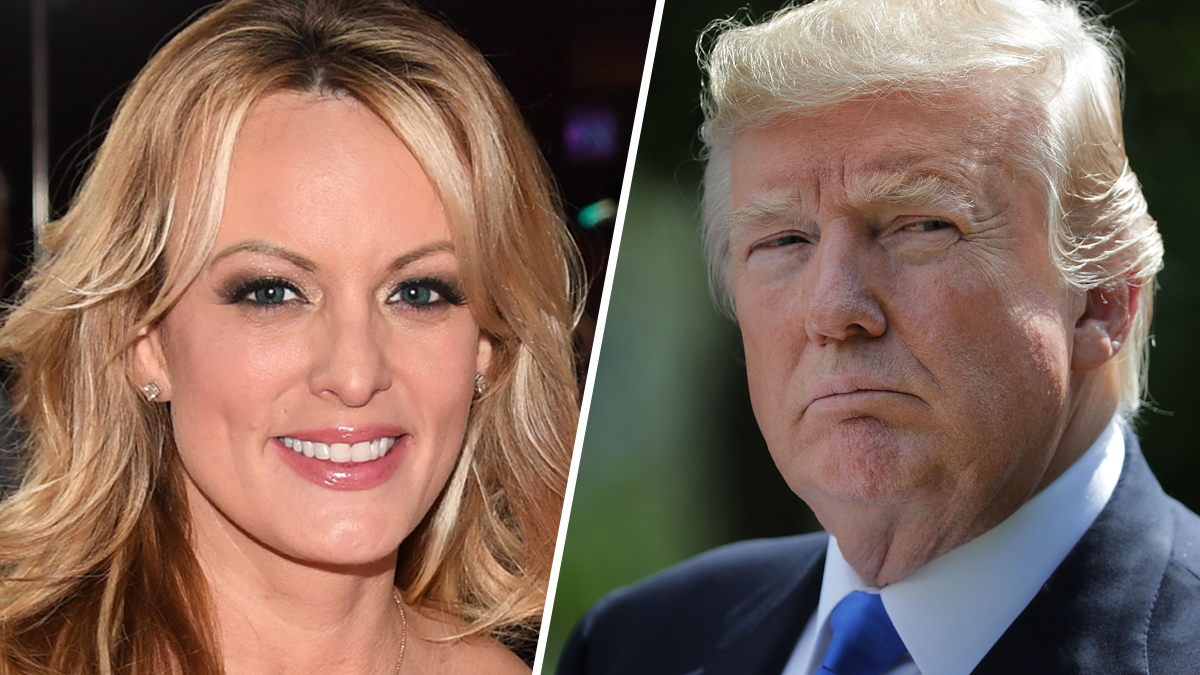What to Know
- About two out of every three sexual assaults go unreported to police, according to the anti-sexual violence non-profit RAINN
- After Trump wondered why Ford didn't report her alleged assault, Twitter users shared the hashtag #WhyIDidntReport with their own stories
- Sexual assault can leave victims with post-traumatic stress disorder, depression and suicidal thoughts, says the Joyful Heart Foundation
Some of the most vocal proponents of the #MeToo movement and droves of other women have come to the defense of Christine Blasey Ford after President Donald Trump questioned her credibility and wondered why she didn’t report her sexual assault at the time she said it happened.
In a slew of unrestrained tweets Friday, Trump contended that if the attack Ford said happened at the hands of Supreme Court nominee Brett Kavanaugh was “as bad” as she claims, she would have “immediately” reported it to local authorities. He asked her to produce the report to prove the details of her alleged assault and wondered, “Why didn’t someone call the FBI 36 years ago?”
The president's brazen comments sparked the birth of a new trending hashtag, #WhyIDidntReport, and inspired victims to reveal their own stories of assault and share their reasons for not telling anyone about the violence.
One of those victims was Alyssa Milano, who has helped propel the #MeToo movement into the national spotlight in the last year. She threw her support behind Ford and told Trump to pay attention to the stories being told.
“I was sexually assaulted twice. Once when I was a teenager. I never filed a police report and it took me 30 years to tell [my] parents,” the actress wrote on Twitter.
U.S. & World
#WhyIDidntReport jumped to the top of Twitter’s trends in the wake of Trump's claims, with social media users challenging the president’s assertions.
Several women shared incidents they said happened when they were young children, saying they didn’t know what had happened to them at the time. Others said they felt ashamed or embarrassed about their role in the situation, thinking they “asked for” the assault or didn’t do enough to stop it themselves.
Others described feeling powerless against their attacker, saying they felt they had no one to report the assault to, that those they did tell didn’t do anything or that they would suffer further harm if they spoke out.
Ford has accused Kavanaugh of sexually assaulting her when they were teens in the 1980s. She said he pinned her on a bed, groped her, tried to undress her and held his hand over her mouth when she tried to scream. Ford said in her interview with The Washington Post that she didn't tell anyone about the incident until 2012, when she was in therapy sessions with her husband.
Kavanaugh has denied the claims, but the allegation has halted his confirmation proceedings.
Trump himself has been accused of sexual assault and harassment as well, by at least 19 women. One of those known accusers, Jessica Leeds, claimed Trump groped her breasts and put his hand up her skirt on an airplane in the early 1980s. She told The New York Times she did not report the incident at the time because she had experienced that behavior from men before in the 70s and 80s.
"We accepted it for years,” she told the Times of the behavior. “We were taught it was our fault.”
The White House has said the allegations against Trump are "false."
But the #WhyIDidntReport testimonies being shared on social media fall in line with national statistics on sexual violence.
About two out of every three sexual assaults go unreported to police, according to the anti-sexual violence non-profit RAINN, which stands for Rape, Abuse and Incest National Network. Reasons for not reporting the assault to police include fearing retaliation, believing police would not do anything to help, believing it was a personal matter, having already reported it to a different official and believing it was not important enough to report.
The organization also operates the National Sexual Assault Hotline (800-656-4673).
The Bureau of Justice Statistics also reports that a majority of rapes and other sexual assaults aren't reported to police. Between 2006 and 2010, an average of about 211,200 rapes and sexual assaults went unreported each year.
But even if a victim does report their assault, the likelihood that the perpetrator will be held accountable is slim, according to RAINN. Out of every 1,000 rapes, only 57 cases lead to an arrest and 11 cases will be referred to prosecutors. Only seven cases will lead to a felony conviction.
Ashley Judd, who accused disgraced movie mogul Harvey Weinstein of sexual harassment and claimed he hurt her career after her rejections, also tweeted her own #WhyIDidntReport.
“The first time it happened, I was 7. I told the first adults I came upon. They said “Oh, he’s a nice old man, that’s not what he meant.” So when I was raped at 15, I only told my diary. When an adult read it, she accused me of having sex with an adult man,” Judd wrote.
Men shared the hashtag too, supporting women victims and also offering their own stories. Many said they feared they wouldn’t be believed if they came forward with their accusation.
One out of every 10 rape victims is male, according to RAINN.
And nearly half of transgender people are sexually assaulted in their lifetime, according to the 2015 U.S. Transgender Survey.
Sexual assault can leave long-term effects on victims, including post-traumatic stress disorder, severe anxiety, depression and suicidal thoughts, according to the Joyful Heart Foundation, an anti-sexual assault group founded by "Law and Order" actress Mariska Hargitay.
Most women who are raped — 94 percent — experience symptoms of PTSD in the two weeks following the rape, according to RAINN. And 30 percent experience symptoms in the nine months after.
About 70 percent of sexual assault victims experience moderate to severe distress, a larger percentage than for any other violent crime, according to RAINN.
Ford, in her Post interview, said she has suffered "long-term effects" from the assault and has sought treatment for it.
One Twitter user named Kirsten King, a writer, reminded readers that those participating in the #WhyIDidntReport hashtag are "reliving their trauma to try and teach folks to extend long overdue empathy and protection. The folks posting are only a drop in the bucket – so many people aren't (and may never be) ready to relive that trauma." Her tweet garnered more than 3,800 likes by Friday evening.
The National Suicide Prevention Lifeline at 1-800-273-8255 provides people in distress, or those around them, with 24-hour support. The Crisis Text Line allows people to text 741-741 to connect with crisis counselors.



